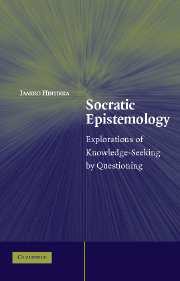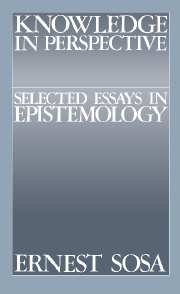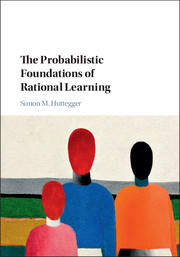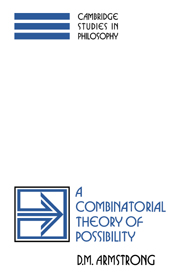Socratic Epistemology
Most current work in epistemology deals with the evaluation and justification of information already acquired. In this book, Jaakko Hintikka instead discusses the more important problem of how knowledge is acquired in the first place. His model of information-seeking is the old Socratic method of questioning, which has been generalized and brought up-to-date through the logical theory of questions and answers that he has developed. Hintikka also argues that philosophers' quest for a definition of knowledge is ill-conceived and that the entire notion of knowledge should be replaced by the concept of information. He offers an analysis of the different meanings of the concept of information and of their interrelations. The result is a new and illuminating approach to the field of epistemology.
- Discusses the concretely important problem to epistemology of how knowledge is acquired in the first place
- Uses the old Socratic method of questioning brought up to date through the logical theory of questions and answers Hintikka developed
- A new and illuminating approach to the field of epistemology
Product details
September 2007Paperback
9780521616515
248 pages
229 × 162 × 15 mm
0.34kg
Available
Table of Contents
- Introduction
- 1. Epistemology without knowledge and without belief
- 2. Abduction: inference, conjecture, or an answer to a question?
- 3. Second-generation epistemic logic and its general significance
- 4. Presuppositions and other limitations of inquiry
- 5. The place of the a priori in epistemology
- 6. Systems of visual identification and neuroscience: lessons from epistemic logic with John Symons
- 7. Logical explanations
- 8. Who has kidnapped the notion of information?
- 9. A fallacious fallacy?
- 10. Omitting data: ethical or strategic problem?







